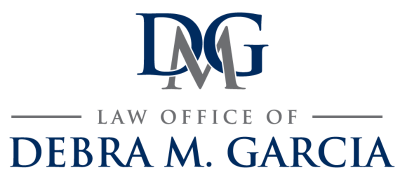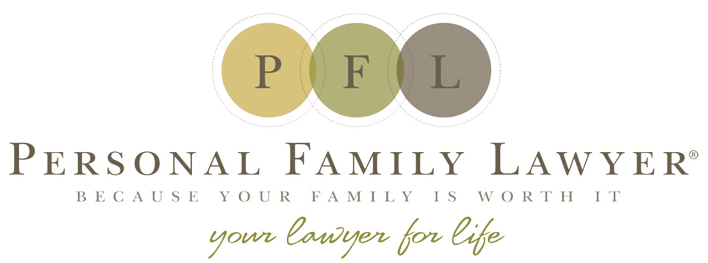Protect Your Children's Inheritance
Keep the Government and Lawsuit-Happy Opportunists Away From Your Children’s Inheritance
March 1, 2023
If you have a current estate plan and you have children, my guess is that you plan to leave your assets to your children outright and unprotected by age 35, or maybe a little later. Go take a look at your estate plan, and see what it does right now. And, if you don’t have an estate plan, and you have kids or other people you care about, contact us today and let’s get that handled for you.
If you do have a plan and it distributes your assets outright to your kids – even in stages, over time, some at 25, then half of what’s left at 30, and the balance at 35 (or something along those lines), you’ve overlooked an incredibly valuable gift you can give your children (and the rest of your descendants for generations, if you choose), a gift that only you can give them. And a gift that, once you’ve died and left them their inheritance “outright,” is lost and cannot be reclaimed.
Leave your kids a nest egg protected from lawsuits, divorce, and estate taxes
You may think to yourself, my kids’ inheritance doesn’t need to be protected. They aren’t going to get sued. You may be right. Let’s hope so. But you may also be overlooking one of the most common “lawsuits” that causes inheritances to be lost every day, and that’s d-i-v-o-r-c-e. If you want to protect the money you are leaving to your children from possible future divorces (even if you love their spouses), you can easily do so using a protected trust.
And, if your child is ever involved in a lawsuit, for example, a simple car accident, or if a business transaction goes bad, what you leave to your child can be protected from all future lawsuits or claims against them.
The best part is that if your child has their own taxable estate when they die, your planning now could save your family 40 cents on every dollar (or more) handed down from one generation to the next.
Save your family Up to 40 cents on every dollar -- currently -- at each generation
As of 2023, the current federal estate tax rate is 40% – meaning that every dollar passed on over the estate tax exemption rate is taxed at 40%. And it has been as high as 55%. On top of that, many states have estate taxes as well (fortunately, California does not have an estate tax).
This all adds up fast, and can decimate your family’s financial legacy, over time. Every million dollars you leave outright to your children, if your children have a taxable estate when they die, could result in your grandchildren receiving only $550,000, with $450,000 going to the government ... unnecessarily.
So, if you want to know that everything you’ve worked so hard to create will stay in your family for generations to come and not be lost to outsiders, leaving your assets to your children protected in a trust we call a Lifetime Asset Protection Trust, instead of “outright” is the way to go. And, it can be easily built in to your existing estate plan or trust, you just need to ask us to help you get a Lifetime Asset Protection Trust added to your plan.
But how will my kids get to use what I leave to them?
Here’s the best part about leaving your assets to your children in a Lifetime Asset Protection Trust. Not only is what you leave protected, but your children control what you leave them when you decide they are ready.
After your death, the assets you leave behind will pass to your children (and your grandchildren, great-grandchildren, and so on for successive generations) in a Trust that your child can control, as the Trustee of the Trust. You can decide when your child is mature enough to act as a Trustee.
As the Trustee of the Trust, your child decides how what you’ve left is invested and what to do with the Trust assets. And your child will even be able to determine the amount of control vs. the amount of asset protection he or she wants based on his or her specific life circumstances.
Is this still important if I don’t have much money?
If you only leave your children a small amount of money, this is still incredibly valuable for protection, if you are leaving assets that will be invested and grown, and not just spent right away on consumables. It might even be more important because your family has less to lose to taxes, lawsuits, and divorce each generation. And the impact of such losses is much greater.
A mere $10,000 protected now can become millions for the people you love for generations to come
Imagine that you leave just $10,000 to your child in a Lifetime Asset Protection Trust, and instead of spending that $10,000 or losing it in a divorce, they invest that $10,000 in creating their own business inside their trust, and then grow that business into a million dollar or multi-million dollar venture because of how you chose to leave your child that $10,000 gift … and it’s fully protected for generations.
Secure the future of your family today by speaking to us, your Personal Family Lawyer®. We review estate plans and inherited funds with you, ensuring that all legalities are in place so generations can enjoy the benefits according to your wishes. Don't wait, get peace of mind now - contact us today to get started.
This article is a service of the Law Office of Debra M. Garcia, Personal Family Lawyer®. We do not just draft documents; we ensure you make informed and empowered decisions about life and death, for yourself and the people you love. That's why we offer a Life & Legacy Planning Session, during which you will get more financially organized than you’ve ever been before and make all the best choices for the people you love. You can begin by calling our office today to schedule a Life & Legacy Planning Session and mention this article to find out how to get this $750 session at no charge.
The content is sourced from Personal Family Lawyer® for use by Personal Family Lawyer firms, a source believed to be providing accurate information. This material was created for educational and informational purposes only and is not intended as ERISA, tax, legal, or investment advice. If you are seeking legal advice specific to your needs, such advice services must be obtained on your own separate from this educational material.
Read more Estate Planning Blog articles



